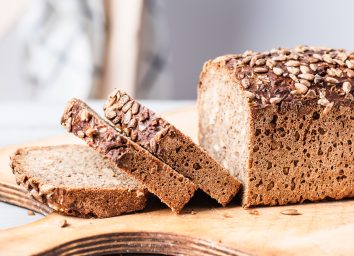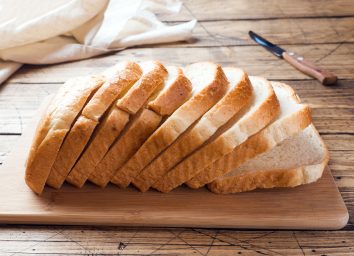Surprising Side Effects Bread Has On Your Gut, Says Science
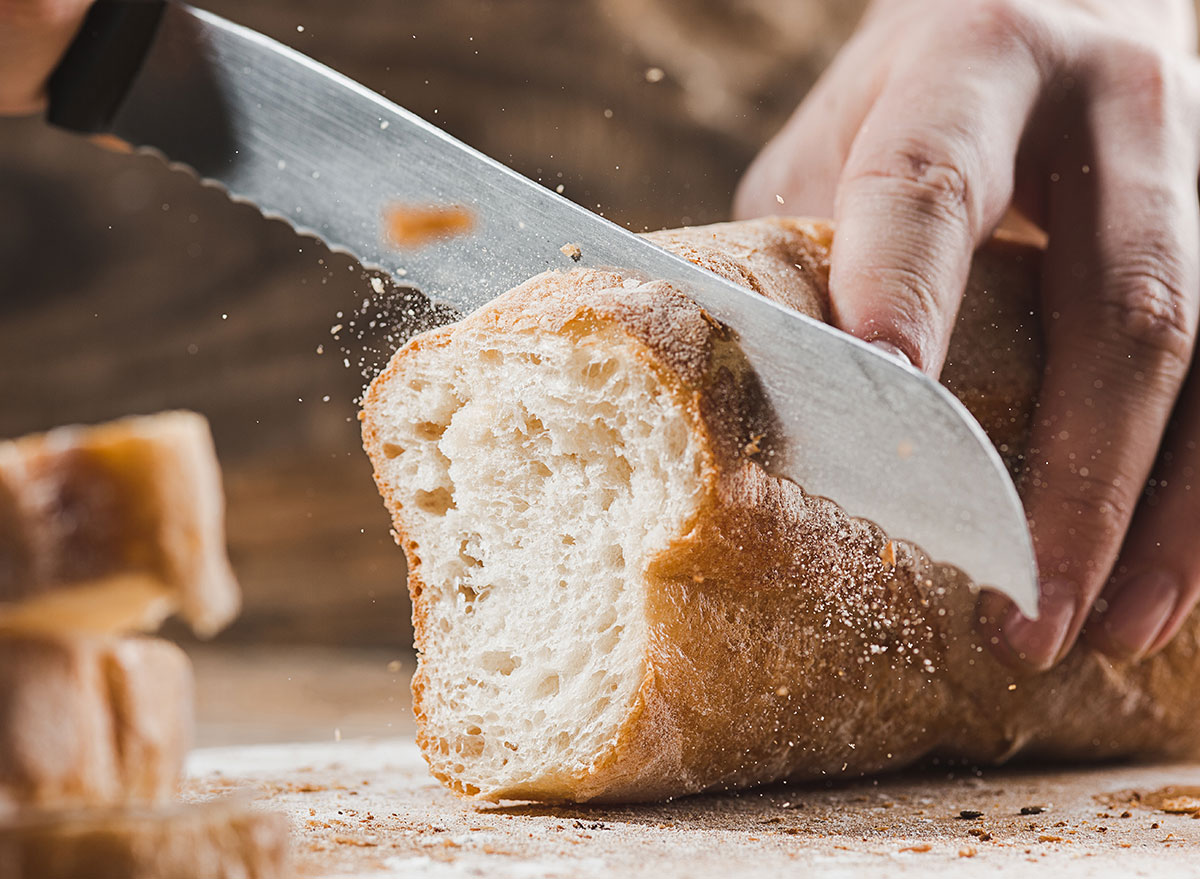
Although bread gets shunned by many, choosing the right type of bread can have positive effects on your gut. Of course, the opposite can possibly be true as well. Here is a rundown of five surprising side effects bread has on your gut. Read on, and for more on healthy eating, don't miss 7 Healthiest Foods to Eat Right Now.
It can improve gut health.
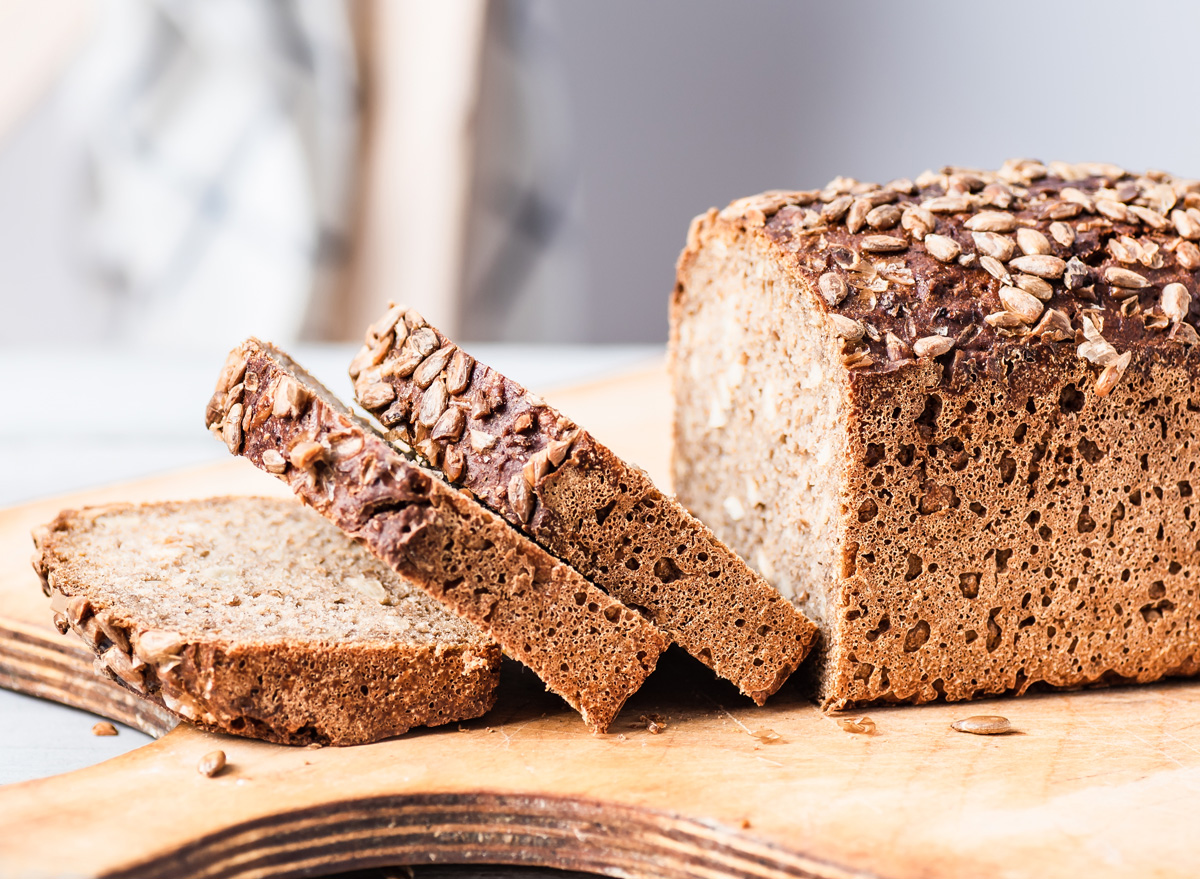
Choosing high fiber, 100% whole grain bread can improve gut health "because the soluble fiber found in some whole grains is fermented by the good bacteria in the gut to produce short-chain fatty acids," explains registered dietitian Lauren Harris-Pincus, MS, RDN, founder of NutritionStarringYOU.com and author of The Protein-Packed Breakfast Club. "These short-chain fatty acids are gold standard fuel for the cells in the colon and they can improve the gut barrier, decrease inflammation, and reduce the risk of colon cancer."
READ MORE: The Healthiest Breads to Eat for Weight Loss, According to Dietitians
Can boost the immune system.
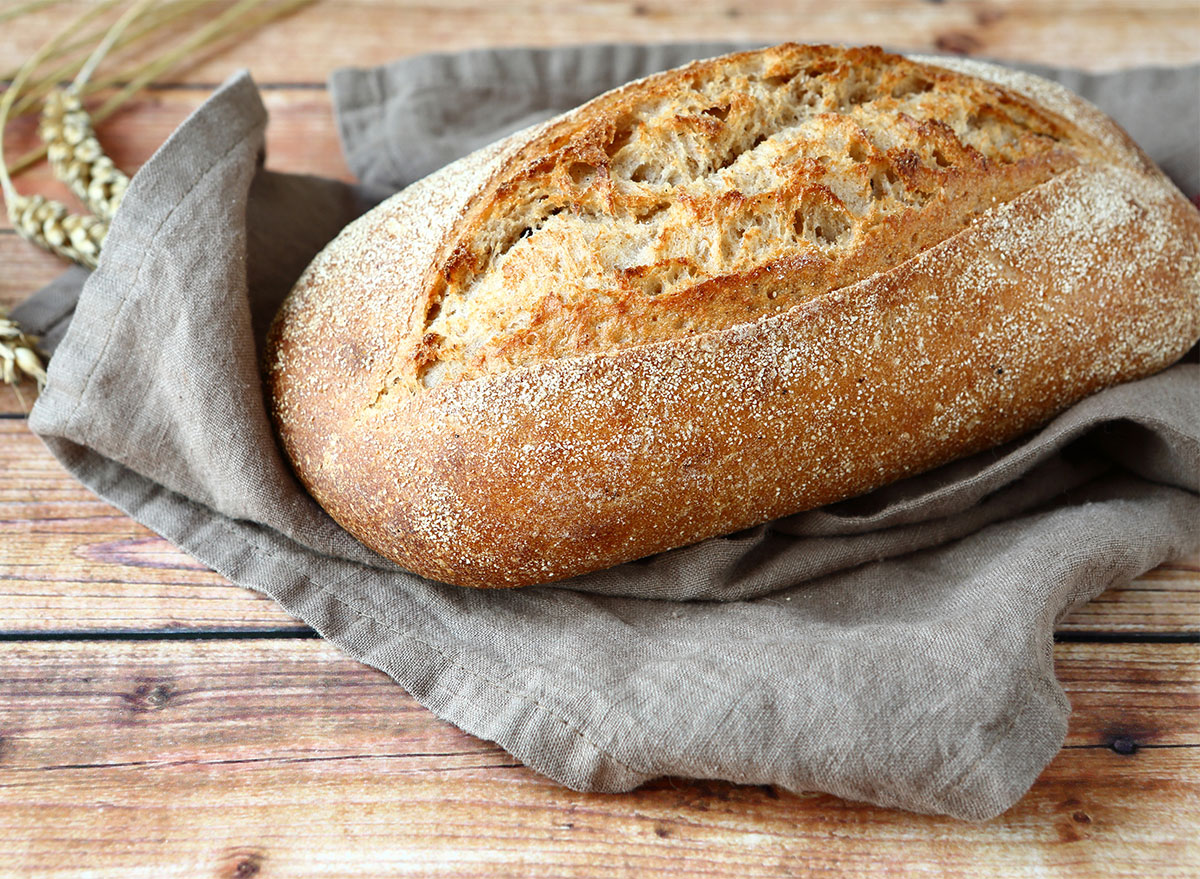
Several studies have been conducted to check how gut microbes respond to the consumption of whole grains, including 100% whole grain bread. Eating whole grains can benefit the bacteria profile in your gut. Some studies have shown that whole grains, including 100% whole grain bread, increase the microbes called Bifidobacteria and Lactobacilli. When these microbes are increased it has been associated with boosting the function of the immune system—just like with these 30 Best Immune-Boosting Foods.
May help you feel satisfied.

There is evidence that suggests that eating whole grains, like 100% whole rye bread and whole wheat bread, can affect gut bacteria and lead to a feeling of fullness (or satiety). The research pointed more towards whole oats, barley, and rye – which can be found in some whole grain breads. Although more research is needed, including different varieties of whole-grain breads in your healthy eating plan may help keep you feeling satisfied. So not only can bread support your gut microbiome health, but eating the right kinds can also keep you full and keep your gut waistline in check.
May cause abdominal pain, gas, bloating, diarrhea, or constipation.
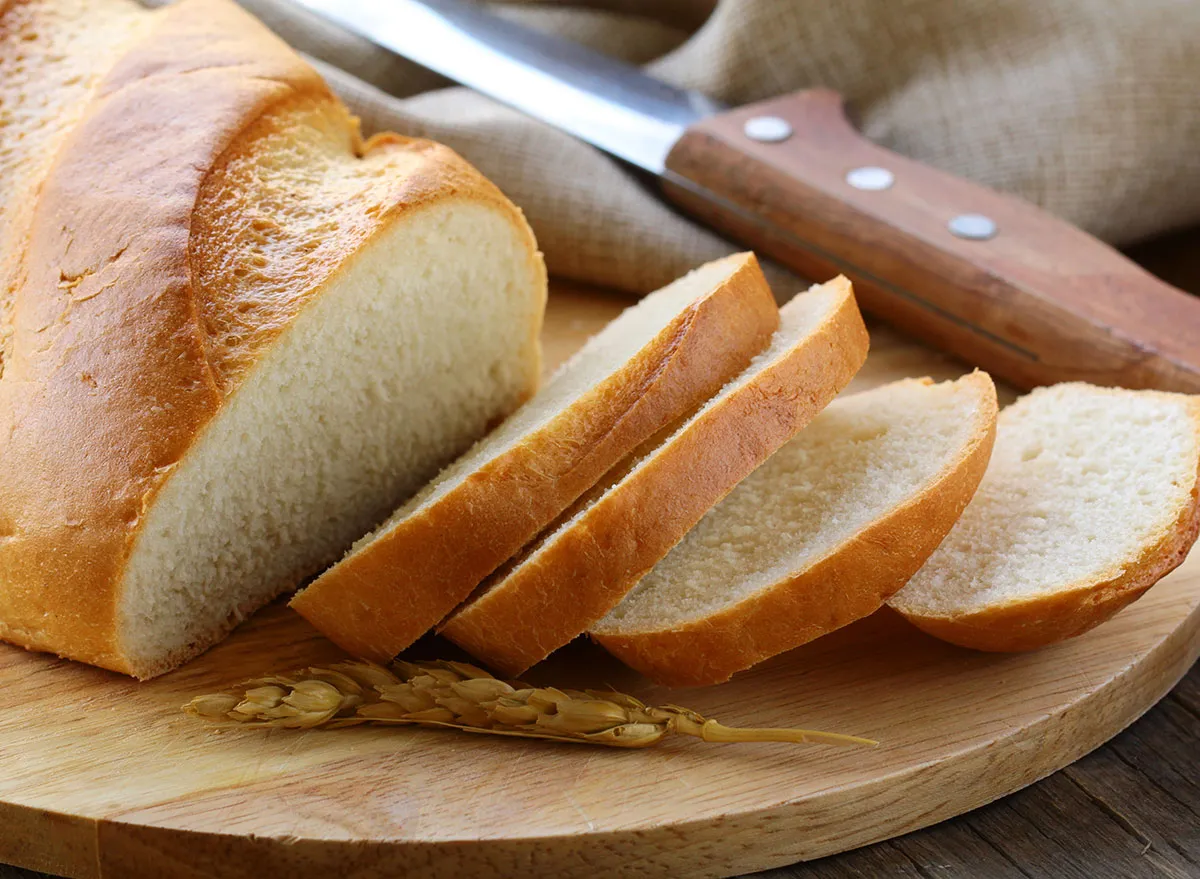
For those with Irritable Bowel Syndrome (IBS) "consuming certain fermentable carbohydrates in bread called FODMAPS can cause abdominal pain, gas, bloating, diarrhea or constipation," says Harris-Pincus. "While people often blame gluten, the offender may actually be the fructans that are found in gluten-containing grains like wheat, rye, or barley." Instead, Harris-Pincus recommends trying a gluten-free variety of bread or white sourdough which is usually better tolerated.
Can cause imbalance of the bacteria in your gut.

Eating bread that is low in whole grains, like white bread is associated with a condition known as gut dysbiosis, which means it can lead to an imbalance of gut microbes. This means that the bacteria in your gut is not doing a great job at keeping your gut healthy. On the other hand, you may be able to support the growth of beneficial bacteria by adding fermented foods to your diet. Learn more by reading up on What Happens To Your Body When You Eat Fermented Foods.
